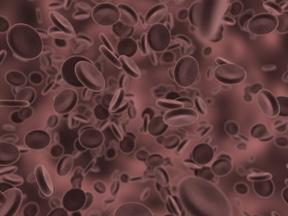
July 21, 2011 – The U.S. Food and Drug Administration (FDA) today approved AstraZeneca’s blood-thinning drug ticagrelor (Brilinta) to reduce cardiovascular death and heart attack in patients with acute coronary syndromes (ACS).
The new class of antiplatelet therapy drug offers greater benefits over the current standard of clopidogrel (Plavix). The new drug is also the first with the ability to have its effects reversed quickly, reducing bleeding complications if a patient requires surgery or suffers trauma.
According to the PLATO (A Study of PLATelet Inhibition and Patient Outcomes) study of more than 18,000 patients, ticagrelor was superior to clopidogrel in the long-term reduction of cardiovascular events. Data showed ticagrelor reduced cardiovascular death, heart attacks and stroke over clopidogrel (9.8 vs. 11.7 percent), without an increase in overall major bleeding (11.6 vs. 11.2 percent). Unlike clopidogrel or prasugrel (Effient), approved in 2009, ticagrelor is the first reversible oral antiplatelet drug.
Ticagrelor has been studied in combination with aspirin (dual antiplatelet therapy – DAPT) and it was found aspirin doses above 100 milligrams per day actually decrease the effectiveness of the medication. For this reason, the FDA is requiring a boxed warning to healthcare professionals and patients.
“In clinical trials, Brilinta was more effective than Plavix in preventing heart attacks and death, but that advantage was seen with aspirin maintenance doses of 75 to 100 milligrams once daily,” said Norman Stockbridge, M.D., Ph.D., director of the division of cardiovascular and renal products in the FDA’s Center for Drug Evaluation and Research.
The boxed warning also says that, like other blood-thinning agents, ticagrelor increases the rate of bleeding and can cause significant, sometimes fatal, bleeding. The most common adverse reactions reported by people taking ticagrelor in clinical trials were bleeding and difficulty breathing (dyspnea).
Ticagrelor, like other antiplatelet agents, can cause significant, sometimes fatal, bleeding. In PLATO, there was no statistical difference in patients treated with the drug compared to patients treated with clopidogrel in total major bleeding events (11.6 vs. 11.2 percent), including fatal and fatal/life-threatening bleeding events. Non-coronary artery bypass graft (CABG) major plus minor bleeding events (8.7 vs. 7 percent) were more common with ticagrelor versus clopidogrel. With dyspnea, ticagrelor vs. clopidogrel was 14 vs. 8 percent.
Ticagrelor was approved with a risk evaluation and mitigation strategy, a plan to help ensure that the drug’s benefits outweigh its risks. As part of that plan, the company must conduct educational outreach to physicians to alert them about the risk of using higher doses of aspirin. In addition, the drug will be dispensed with a medication guide that informs patients of the most important information about the medication. The guide will be distributed each time a patient fills their prescription.
Now that ticagrelor is approved in the United States, AstraZeneca said it will begin the process of working with hospital formularies, protocol committees, government and managed care reimbursement bodies to bring this medicine to patients. Navigating these steps, which are necessary before the drug will be available to a substantial number of incident ACS patients, will be a key focus for the next 12 months, the company said.
Ticagrelor is now approved in 39 countries, including the United States, Brazil, Australia, and Canada under the trade name Brilinta and in the European Union under the trade name Brilique. The drug is currently under regulatory review in an additional 45 countries, including Russia, India and China.
For more information: www.astrazeneca.com


 August 28, 2023
August 28, 2023 









